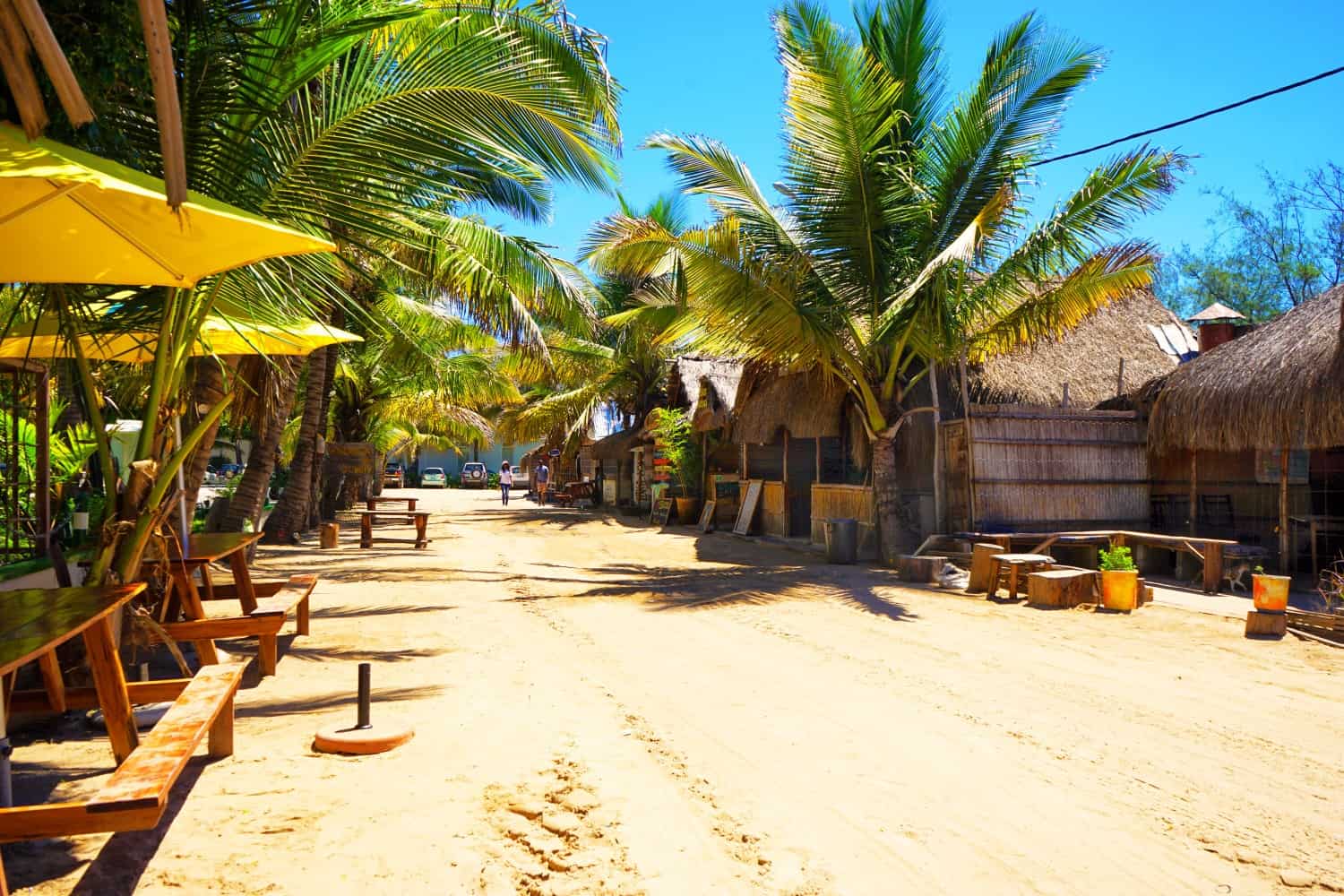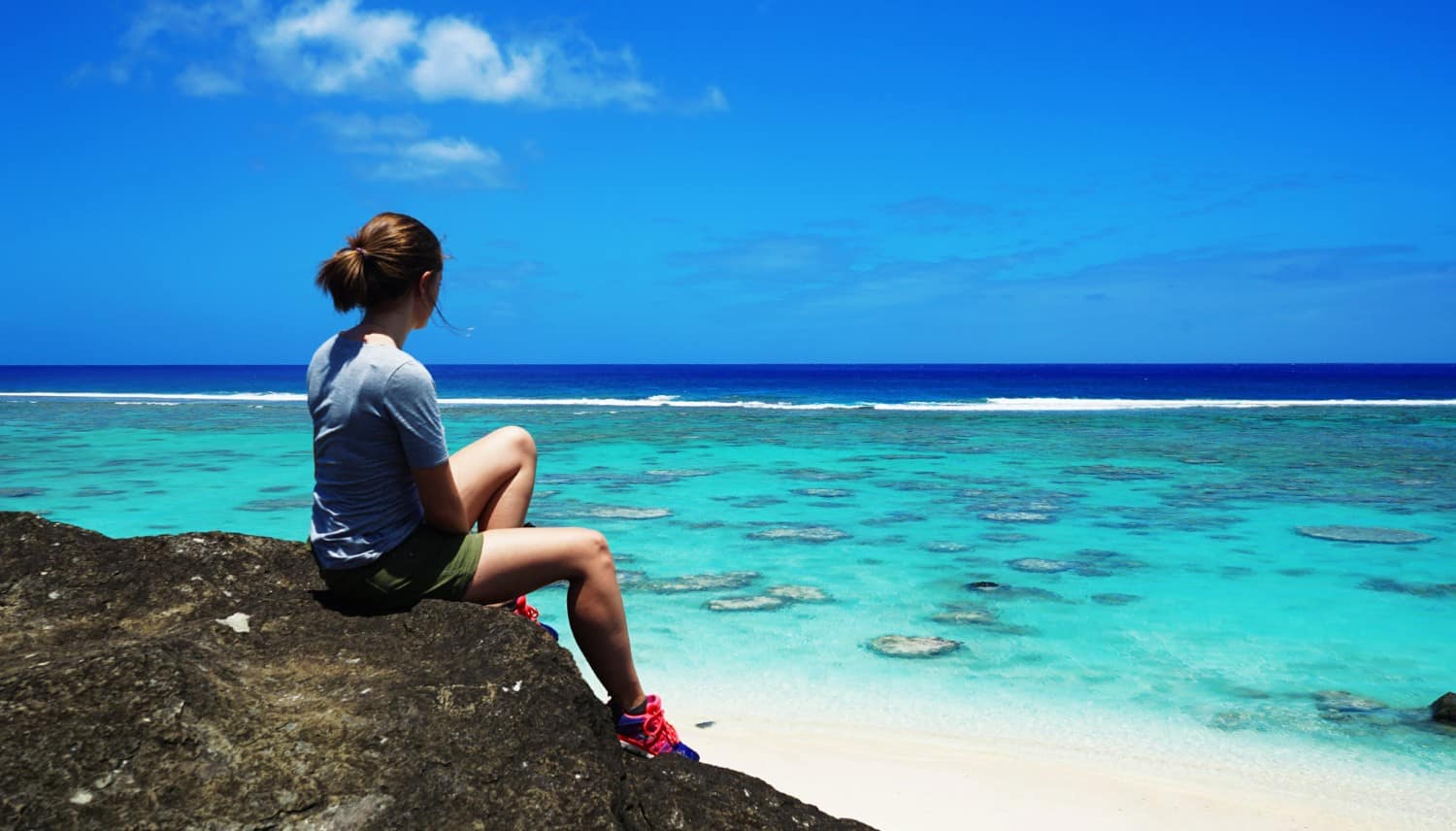When I first decided to quit my job and sell everything I own to travel, one of the things I most worried about was vaccines.
I knew that I wanted to spend my time primarily exploring developing countries and I was concerned about exposing myself to dangerous tropical diseases. I was determined to ensure I received the most protection necessary without spending too much money or receiving vaccines that weren’t required. Despite all of this, I struggled to work out which vaccines I would need for which countries, how dangerous these tropical diseases could be, and how much risk I would be exposing myself to if I decided not to get them.
I researched the options for months on end and compiled the information I discovered into one comprehensive guide, which you’re currently reading.
In this article, I’m going to be covering which vaccinations you should be looking at getting and which ones you’re able to skip. I’ll cover the type of prices you can expect to pay and whether you’ll be able to obtain some of them for free. I’ll also share the possible side effects you may encounter from getting your travel shots, and whether you can get a bunch of them together. I’ll also let you know how soon before your departure date you need to start getting them.
In short, I’m aiming to answer every possible question you could have about vaccines and long-term travel.

An Introduction to Travel Vaccines
If, like me, you grew up in a Western country away from the equator, you likely haven’t had to worry too much about contracting a dangerous tropical disease. If, however, like me, you have the urge to travel far and wide, you likely know you’re going to want to get some vaccines to boost your immune system.
There are hundreds of deadly diseases around the world — many of them clustered around the tropics — so if that’s an area you want to visit, you’re going to want to protect yourself from falling ill.
Fortunately, there are plenty of vaccines to give you immunity against these diseases. I highly recommend getting them if you’re going to be travelling into a high-risk area.
This is an extensive list of the diseases you may encounter and which you can be vaccinated against.
The Dipheria/Tetanus/Polio vaccine:
Tetanus is a toxin that is distributed via spores, and the disease can be contracted by said spores entering a wound that you may have if you are injured. In short, if you cut yourself or are bitten by a wild animal, you’ll want to get a tetanus shot to prevent you from contracting it.
Tetanus has an incubation period of 3-21 days, and during this time, your muscles start to become rigid, until eventually you’re paralysed and won’t even be able to open your mouth. Tetanus can be fatal, so this is definitely a vaccine you’ll want to opt for, if you haven’t already been vaccinated at home.
Fortunately, polio is rare these days, thanks to the polio vaccine. This disease is primarily contracted through contaminated food and water. It has an incubation period of 7-14 days and in 90% of cases, there will be no symptoms. 8% of cases will experience mild flu-like symptoms, and the remaining 2% will experience paralysis, bladder dysfunction, impaired swallowing, breathing, and speech, which could be fatal. You only need to browse through Google Images for photos of people who have been impacted by polio to know it’s something you definitely want to be protected against.
And finally, diphtheria is a highly-contagious respiratory illness contracted from inhaling water vapour when infected people cough, sneeze, or breathe around you. It has an incubation period of 2.5 days and can kill you.
You can get a combination vaccine that will give you protection against all three of these illnesses at once, and you’ll need to get five booster vaccines in the future. You’ll likely have received the series of jabs and boosters as a kid in school — I did — but it’s worth checking your medical records to make sure. You’ll also want to get a booster every 10 years in order to ensure you’re fully vaccinated, so it’s wise to talk to your doctor or somebody at a travel clinic to see if you’ll need to do this.

The Hepatitis A and B vaccine:
Hepatitis A is a liver infection that’s spread via contaminated food and water or from person-to-person contact. Travellers that are coming from sanitary countries with high levels of hygiene are more at risk, as they won’t have developed immunisation from pre-exposure. It’s really tough to avoid hepatitis A, as there isn’t a way to determine if the food/water you’re consuming is at risk, so this is usually recommend by travel clinics if you’re heading to any developing countries.
Hepatitis A has an incubation period of 3-6 weeks and over 90% of people infected will not show any symptoms. For the 10% that do show symptoms, they’ll experience a fever, joint and muscle pain, an upset stomach, pain in the upper-right quadrant of the stomach, a rash, nausea/vomiting, dark urine, pale stools, and diarrhoea. These symptoms are then following by jaundice and itching. It can then result in liver failure and potentially death.
Hepatitis B is spread from person to person via infected bodily fluid, such as blood/blood contact, infected medical equipment and sexual transmission, and you’re more likely to be infected when in developing countries. Symptoms are much the same as hepatitis A: fever, joint pain, rash, and jaundice, and in some cases, hepatitis B can lead to permanent liver damage and liver cancer.
The Japanese B Encephalitis vaccine:
Japanese B Encephalitis is contracted through the bite of a mosquito. These mosquitoes are normally found in rice paddles, as well as on pigs, birds, and the Siberian stork. Japanese B Encephalitis sometimes exhibits no symptoms, although some people experience fever, encephalitis, meningitis and paralysis. Recovery is slow and long-term debility is common. There is a mortality rate of 30% in children.
Despite this sounding like a pretty terrible disease, the good news is that it’s very rare, and that means that most travellers opt to not get the Japanese B Encephalitis vaccine. I’ll cover the situations where you might want to get this vaccine below.

The Rabies vaccine:
Rabies mostly infects animals, but humans can contract it if they’re bitten by an infected dog, bat, monkey, etc. Once you’ve been bitten, the virus then transfers through the animal’s saliva to you. Symptoms include spams in your diaphragm, convulsions, and cardiac or respiratory arrest.
Guys, rabies is no joke, because if you don’t seek treatment within a couple of days of being bitten, you’ll die. Yep, I was shocked to learn that there are only 10 people who have ever been recorded to have survived rabies within a vaccine or treatment.
You might think this means that the rabies vaccine is an essential, but this shot is an interesting one. What you’ll actually be receiving when you travel is a pre-exposure vaccine.
What this means is that when you’ve been bitten by a rabid animal — say a monkey in Bali — you’ll need to seek immediate medical treatment and receive a series of five injections over the course of a month. If you’ve had the pre-exposure vaccine before you travelled (a series of three shots), you’ll only need to receive two further injections if you get bitten while travelling. That’s five vaccines in total in either situation, and the vaccine just means spreading them out.
And yes, that does mean that whether you’ve had the vaccine or not, you’ll need to seek immediate medical treatment and get injected if you get bitten — the vaccine just means you won’t need as many at that time. Because of this, I’ve always skipped out on the rabies vaccine and figured I’d suck it up and get all five in the case of being bitten.
The Tick-Borne Encephalitis vaccine:
Tick-Borne Encephalitis is transferred to humans via the bite of an infected tick., and it can also be transmitted via milk from infected animals.
Tick-Borne Encephalitis is a flu-like illness, with symptoms appearing within 7-14 days of being bitten. The symptoms can include fever, headache, nausea and photophobia, which could lead to neck stiffness, convulsions and an altered mental state. It could also lead to meningitis, encephalitis and muscular paralysis.
The chances of contracting this are very, very low, unless you’re going to be hanging out in farms, or hiking/camping in Eastern Europe, Russia, and China. I’ve never opted for this vaccine because the risks are super-low, and simply take care not to be bitten by ticks if I’m hiking in any high-risk areas.
The Typhoid vaccine:
Typhoid is transmitted via contaminated food and drink. The symptoms include fever, headache, confusion, abdominal pain and constipation, as well as a rash. You can also die from typhoid fever, so this is something you’ll want to avoid.
You’ll likely need to get the typhoid vaccine if you’re going to be heading into the tropics, as it’s fairly common there and easy to contract through eating/drinking.
The Yellow Fever vaccine:
The yellow fever vaccine is an interesting one, as it’s the only one on the list that’s mandatory. If you’re going to be travelling in South America or Sub-Saharan Africa, you’ll need to get the yellow fever vaccine. Many of the countries with yellow fever require you to have evidence of your vaccine in order to let you in the country, and once you leave, your home country will require proof that you’re vaccinated to let you back in, too
Yellow fever is a nasty disease that’s spread via mosquitoes, so it’s something you’ll definitely want to be protected against. The main symptoms of yellow fever is fever, muscle aches, nausea, dizziness, a red face, vomiting blood, jaundice, bleeding from your nose, mouth, and eyes, liver and kidney failure, and seizures/coma. You can die from yellow fever.

What vaccines do I need for where I am going?
Okay, so that was a whole wall of information, and I wouldn’t be surprised if you’re feeling overwhelmed, confused, and concerned you’re going to need a whole host of vaccines for your upcoming vacation.
For the most part, though, you’ll probably need only three or four. To help you figure out which ones you’ll need, let’s take a deep dive into the countries where you’ll find each of these diseases.
Tetanus is present worldwide. Because of this, it’s definitely worth getting the vaccine, no matter where you’re travelling to. It’s likely, though, that you’ve already been vaccinated for this (a lot of people are), so check your medical records to see.
Polio is very rare these days (there were only 22 cases in 2017), thanks to a solid vaccination program around the world. Today, you’ll only need to worry about polio if you’re going to be travelling to Afghanistan, Nigeria, or Pakistan, and even then, your chances of contracting it is low. Either way, as with tetanus, you’ll probably been vaccinated against this as a kid, so it’s worth checking to see if you have if this is something you’re concerned about.
Diphtheria is found worldwide, and you’ve probably been vaccinated against it as a child. Check if you have, as this may be one less vaccine you’ll need to get.
Hepatitis A is present in pretty much all countries with low levels of sanitation. If you’ll be heading to any countries in the tropics, you’ll want to get this vaccine.
Hepatitis B is found in Southeast Asia, the Middle East, the South Pacific, Africa, and Latin America, including the Caribbean. In other words, you’ll probably want to get this vaccine if you’re heading to any developing countries. You can get this vaccine in combination with hepatitis A, which means one less jab to get!
Japanese B Encephalitis can occur following the rainy season in China, regions of Nepal, northern Burma, eastern and southern states of India, northern Sri Lanka, northern Thailand, Laos and Vietnam. Occasional outbreaks have been reported in Malaysia, Indonesia, Korea, Singapore, southern parts of Thailand, southern Sri Lanka and all of India. It’s fairly rare, though, and I’ve never heard of anybody getting the vaccine or contracting it.
Rabies has a greater risk in Asia, Africa, and South America.
Tick Borne Encephalitis is found in Russia, Austria, Hungary, the Balkans, Czech Republic, Slovakia and Scandinavia. It can also be found in eastern parts of China. It’s usually found in areas with high grass, so if you’re not going to be camping or hiking, you probably don’t need to worry about it. Take precautions to avoid being bitten by ticks instead.
Typhoid is present worldwide, however it is worse where food and water may be contaminated with sewage — in Africa, much of Asia, and South America. Most travellers will get this vaccine.
Yellow Fever is present in tropical Africa and South America. You will probably be required to show a Yellow Fever vaccination certificate to enter certain countries if you are traveling from an infected area. If you’re going to be travelling in Africa or South America, this is likely an essential — you won’t be let in unless you can prove you’ve had your shot.

When should you get your vaccinations?
By now, you probably have a good idea of which vaccines you’re going to need, so now it’s time to start planning a vaccination schedule. Some of the jabs require you to receive several doses, so you’ll want to make sure you have enough time before your departure date to fit them all in. If it all sounds super complicated, head to your local travel clinic three months before your departure date and they’ll be able to help you come up with a schedule.
Let’s take a look at how long you can wait before leaving to get your vaccines.
Hepatitis A and B – The vaccine requires two doses, 30 days apart, which will provide you with one year of protection. You can then have a booster vaccination 6 to 12 months later which will give you 20 or more years of protection. It is best to have the first shot 6 months before your departure date so you can complete the full course before leaving. If this is not possible then you can have the first two shots before you leave, and have the booster shot whilst you are on the road.
Japanese B Encephalitis – three doses on days 0, 7-14 and 28. You will be immune one month after your final dose.
Rabies – days 0, 7, 21-28. You can then have a booster every 2-3 years.
Tick-Borne Encephalitis – Take two does. One at 0 days and the other 4-12 weeks before that.
Typhoid – One dose will protect you for three years, so you can get it earlier than the others.
Yellow Fever – Must be given 10 days before leaving. As this is a live vaccine it has to be given on the same day as other live vaccines (Polio), or 3 weeks apart.
I have been told that if you have left it very late before sorting out your vaccinations, it is is possible ALL of them can be administered at once, but that sounds awful, so get planning early on!
How expensive are the vaccines?
The most important thing is to shop around. Don’t settle for the first quote you are given, look at lots of different companies and try to find the best prices. I started with my doctor’s surgery and found them to be extremely expensive, and after looking around for a bit, I managed to find the same vaccinations for half the price! Prices obviously will vary from place to place, and this is only speaking for the UK. The following will give you some rough averages of prices I’ve found from my research.
It is possible for you to be able to obtain some vaccinations for free from the NHS in the UK, and the three main ones that are normally covered are:
Dipheria/Tetanus/Polio
Hepatitis A
Typhoid
Depending on which borough you live in, you may be able to get even more for free – I have a friend that even managed to get the rabies vaccination for free. Call your doctor’s surgery and find out what’s on offer.
I looked around and this is a list of the cheapest and most expensive prices I found for each of the vaccines:
Diphtheria/Tetanus/Polio:
Cheapest Price: £25.00
Most Expensive Price: £50.00
Hepatitis A:
Cheapest Price: £45.00
Most Expensive Price: £85.00
Hepatitis B:
Cheapest Price: £30.00
Most Expensive Price: £95.00
Japanese B Encephalitis:
Cheapest Price: £50.00
Most Expensive Price: £100.00
Rabies:
Cheapest Price: £17.50
Most Expensive Price: £40.00
Tick Borne Encephalitis:
Cheapest Price: £70.00
Most Expensive Price: £110.00
Typhoid:
Cheapest Price: £25.00
Most Expensive Price: £40.00
Yellow Fever:
Cheapest Price: £45.00
Most Expensive Price: £80.00
How long do the vaccinations last?
Dipheria/Tetanus/Polio: 10 years
Hepatitis A: – Long term
Hepatitis B: – 10 years
Japanese B Encephalitis: 1 year
Rabies: 1-2 years
Tick Borne Encephalitis: 1-3 years
Typhoid: 3 years
Yellow Fever: Life
Any side effects to the vaccines?
All vaccines are likely to cause redness, pain or swelling around the injection site. However, it is possible to experience other side effects, which are listed below, and are quite rare. For what it’s worth, I’ve never heard of anybody having any kind of reaction to a travel vaccine, and I’ve personally experienced zero of the side effects listed below:
Dipheria/Tetanus/Polio – Mild headaches, aching of muscles and a mild fever. Severe reactions are rare.
Hepatitis A – Fever and a headache. Less common side effects are bruising, stiffness in the neck, sore throat, tiredness, nausea, stomach cramps and agitation.
Hepatitis B – Fatigue, headache, irritability, sore throat, tiredness, weakness.
Japanese B Encephalitis – Little adverse effects.
Rabies – Swollen glands, headache, nausea, diarrhea, muscle aches, chills.
Tick-Borne Encephalitis – Apparently it is manufactured using chicken eggs so if you have an allergy to chicken or eggs you should avoid this vaccine. Side effects include joint pain, nausea, tiredness, fever, vertigo, vomiting, hypersensitivity.
Typhoid – Headache, muscle or joint pain, nausea, vomiting, fatigue, abdominal pain and mild fever. Some individuals can develop diarrhea, and allergic reactions like, skin rash, hives, itching and swelling of the eyes or face after taking the oral typhoid vaccine.
Yellow Fever – Tiredness, muscle aches. There are more serious side effects associated with the vaccine so you will have to wait at the clinic for 30 minutes after having had the vaccine to check that you are ok, and not about to have a serious allergic reaction – anaphylaxis. Also rare is encephalitis and inflammation of the liver or kidney. Complications are more likely in the over 70s.
Malaria/Dengue Fever
I saved the most important diseases until last. Malaria/dengue/Zika, etc are serious and sometimes fatal diseases that are spread via mosquitos. When you are bitten by an infected mosquito, a parasite enters the bloodstream and travels to the liver, where they multiply before returning back into the bloodstream to attack the red blood cells. These parasites continue to multiply inside the red blood cells until they burst, releasing even more parasites into the plasma.
Malaria is present in over 100 countries and 40% of the World’s population is at risk. Large areas of Central and Southern America, Africa, the Middle East, India, Southeast Asia and Oceania are considered malaria risk areas.
Common symptoms of malaria consist of flu-like symptoms – the chills, headache, muscle aches and fatigue. Symptoms can also include nausea, vomiting, diarrhoea, loss of red blood cells, as well as jaundice and anemia.
The symptoms normally occur between 10 days and 4 weeks after exposure being bitten by the infected mosquito, with it sometimes being as late as a year.
Any traveler that becomes ill with a fever or flu-like illness whilst traveling, and up to a year after returning from the trip should immediately seek medical attention.
There is not a vaccine available for malaria, but you can take anti-malaria tablets to prevent contraction. As well as taking the tablets you should be vigilant and try to avoid getting bitten as much as possible. You can do this by wearing insect repellent, especially at dawn and dusk when the mosquitoes are most prevalent. Wearing clothes that cover a lot of your skin will also help to prevent bites.
Anti-malarial tablets
Due to growing immunity from mosquitos, different tablets work best in different areas of the world. These are the five main anti-malarial tablets you’ll be likely to be prescribed.
Chloroquine – Start one week before travel and continue for 4 weeks after you return. Can be taken for periods exceeding 5 years. Can cause nausea and mouth ulcers.
Paludrine – Start one week before travel and continue for 4 weeks after you return. Can be taken for periods exceeding 5 years.
Mefloquine – Start 2.5 weeks before travel and continue for 4 weeks after you return. Can be taken for up to one year.
Doxycycline — Doxycycline is recommended to be used in Southeast Asia and in chloroquine-resistant areas. You should start taking the tablets (100mg a day) 2 days before you arrive and continue taking them for 4 weeks after you leave the area. Doxycycline can be taken up to 6 months and usually have very few side-effects. It can make you very prone to sunburn and it’s recommended you don’t sunbathe whilst taking these.
Malarone – Start 2 days before travel and continue for one week after your return. Can be taken for up to one year.
Are the vaccines really necessary?
Obviously it’s up to you if you want to take that risk but, in my opinion, they are. It’s always better to be safe than sorry. Do you really want some crazy tropical disease ruining the trip you’ve been planning for months/years?
Yes, it’s true, you could not have any vaccinations, and be absolutely fine, but that’s definitely not a risk I’m willing to take, and for the sake of a few hundred pounds, I’d rather be safe…

Fortunately, these aren’t mosquito bites… I was attacked by sand flies in Cambodia!
As for me…
I visited Nomads Travel Clinic in London for my first consultation about vaccinations. If you live in London, I would definitely recommend this company. They’re extremely helpful and have the lowest prices I’ve managed to find online. They also don’t charge for consultations or to get vaccination certificates.
My doctor offers hepatitis A and typhoid vaccinations for free on the NHS, so I will be getting those from there. I will be getting my hepatitis B vaccine from Nomads Travel Clinic in London. I’m also bringing 6 months worth of doxycycline as a malaria preventative.

An Update: Ten Years Later
As of 2021, I’ve been travelling continuously for ten years and a lot has changed. It’s time for an update!
As I wrote above, when I left for my round-the-world trip, I got my Hepatitis A, Hepatitis B and Typhoid vaccines. My Hepatitis A and B needed a top-up after a year and fortunately I happened to be back in London at that time. I travelled to Nomads Travel Clinic once more to get my vaccines.
I first visited Sub-Saharan Africa in 2017, and I got my yellow fever vaccine in order to do so. Despite the horror stories I’d read online, I experienced no side effects. I actually haven’t experienced side effects from any of the vaccines I’ve had.
Despite insisting that I’d take malaria tablets while travelling, I rarely have. Instead, I decided to only take anti-malarials in parts of the world where there’s a huge risk — in my case, that meant at-risk countries in Africa. I always take malarone over doxycycline when in Africa because it has fewer side effects and isn’t an antibiotic.
After weighing up the pros and cons while talking to other travellers, I decided there wasn’t enough of a risk in places like Southeast Asia, Latin America, and the Caribbean to warrant taking the tablets. Instead, I smother myself in insect-repellent, cover up at night, and use mosquito nets to stay safe. After all, there’s likely a great risk of dengue and zika in these countries and there’s no prevention available for that.
I got freaking cholera!
In early-2018, I travelled to Borneo and experienced a sickness that is still wreaking havoc on my immune system, over a year later. Knowing that there’s a vaccine available for cholera and that I skipped over it because I believed the disease was rare enough to avoid it was heart-breaking. Cholera is a horrible disease — people die from it — and my stomach hasn’t been the same since.
While it is rare and it is unlikely you’ll contract it on your travels, I’d say it’s better to be safe than sorry. The disease was far worse than the vaccine and I wish I’d gotten the jab.
Travel Insurance
While we’re talking about tropical diseases and staying healthy on the road, I have to mention travel insurance, because whatever you decide for vaccinations, you 100% should travel with insurance.
As someone who works in the travel industry, I’ve seen far too many Go Fund Me campaigns from destitute backpackers that are unexpectedly stranded in a foreign country after a scooter accident/being attacked/breaking a leg with no way of getting home or paying for their healthcare. These costs can quickly land you with a six-figure bill to pay at the end of it.
In short, if you can’t afford travel insurance, you can’t afford to travel.
Travel insurance will cover you if your flight is cancelled and you need to book a new one, if your luggage gets lost and you need to replace your belongings, if you suddenly get struck down by appendicitis and have to be hospitalised, or discover a family member has died and you need to get home immediately. If you fall seriously ill, your insurance will cover the costs to fly you home to receive medical treatment.
I use SafetyWing as my travel insurance provider, and recommend them for trips all across the planet. Firstly, they’re one of the few companies out there who will actually cover you if you contract COVID-19. On top of that, they provide worldwide coverage, don’t require you to have a return ticket, and even allow you to buy coverage after you’ve left home. If you’re on a long-term trip, you can pay monthly instead of up-front, and can cancel at any time. Finally, they’re cheaper than the competition, and have a clear, easy-to-understand pricing structure, which is always appreciated.
With SafetyWing, you’ll pay just $1.50 a day for travel insurance.
I hope you’ve found this post to be useful and it cleared up any questions you may have had about vaccinations. If you do still have any questions, or would like to offer advice for any other parts of the world please leave a comment below!



Hmmm… we’re less than 6 weeks away from going to Asia for a week and hadn’t even thought about vaccinnations!
Unorganised much? Thanks for sharing this info though, will be sure to read over it before we head overseas long-term.
Hahaha – I have to be organised or I just freak out!
Don’t worry though, 6 weeks is still plenty of time. I am going to get mine 5 to 6 weeks before my departure date.
Although if you’re only going for a week I would probably just get malaria tablets to be on the safe side!
Omg I can’t even deal. I hate needles and shots more than anything. Just put me under and give me all the shots at once! haahahaha
:D I know!! I hate them, and I always freak out they’re going to give me the disease! I’ve passed out before having shots so I’m really not looking forward to the load I’m going to have to have soon!
I can’t believe how cheap rabies shot is over there. It’s prohibitively expensive here in California. Like close to $1000 for the series! I think we’ll wait until we get that shot for cheaper abroad.
Wow, really?! That is actually insane! I wonder why it’s so much more expensive over there…!
Same here in Canada, our round of shots end up costing over $2,000 per person.
I wonder if it’s a quality issue, our Jap. Enc. vaccine lasts 2-3 years before a booster is required, unlike yours which lasts 1.
And, our rabies lasts a lifetime.
Wow, that’s so expensive – To think I was complaining about the prices I had to pay here in England!
Maybe that is true about the quality, strange though, you’d think they’d offer the best quality shots everywhere!
Fiancè and I had Dip/Typhoid/Hep A…..all free from our GP.
Thanks for all the great information on vaccinations- very inclusive! Too bad there is no vaccine for Hep C, just A and B!
Thanks! That’s so true..
I had to have five different injections all in one go before I went to Vietnam last year. Not ideal, but at least it got it all out of the way and some of them will last for about 10 years now, so phew! I got all five of them for free on the NHS…I’m hoping that for my upcoming RTW I’ll only need to fork out for malaria tabs and the Enchepalitis one! Fingers crossed, because otherwise it can take a chunk out of your budget!
Wow, I bet that was painful!! I think it varies between surgeries what ones you can get on the NHS. I can only get two for free, but I know a friend who managed to get ALL of his on the NHS!
It sounds like you’ll still be protected for most of them, fingers crossed! :D
Need hernia surgery in two weeks. That leaves nine weeks before trip to south africa. Can I take Hep A HepB and Typhoid before surgery? If not how long after surgery can I take them?
I’m not a doctor – no idea!
Hi Lauren
Great piece and very informative. I am looking at the cost of rabies jabs at the moment and can’t find anything as cheap as £17.50 locally (just finding the £40+ ones, and then times 3). Did you have yours at 1st Contact in the end, if so did it all work out well? Thanks
Hi Chris,
Yep, 1st contact were great – really recommend them!
Where on earth did you find rabies for £17.50 japanese encephilitis for £50? the cheapest I’ve found is £150 for rabies and £160 for japanese encephilitis. I also need to get yellow fever thus making my travelling injections cost £360 :/
I’m supposed to be leaving at the end of this month, when I told the doctor this they said it was fine, but if I need Hep A & B how can they do this when my appointment is not until a week before I leave? Also I kind of assumed they were free and have not budgeted it for it at all, shouldn’t they have told me upfront how much it would cost if they were going to charge me?
Hi Zoe, I’m not a doctor so I can’t answer your question. You have to pay for travel vaccinations everywhere in the UK.
If you are fully registered as NHS patient, you’ll get the vaccinations as part of your immunisation schedule.
hey!
I’m wondering where you found the cheapest Japanese B E vaccination? I’m in two minds about it and would like to have it but it’s so damn expensive.
Let me know please.
Ed x
Great post Lauren! I’m planning a big trip to South America and my nurse had no idea! She told me I didn’t need Hep B even though my travel card says I should have had a booster last year; she said I’ve had so many Hep A vaccinations I was in danger of contracting the actual disease; and she said I should have had tetanus in 2007 and have been at risk ever since. To top it off, she had no idea what to do about me planning to travel for more than 3 months when it comes to malaria tablets. I can’t be the first one to do it. This does not fill me with confidence! :-S
Hello Lauren – this is a fabulous site. I was recently in Africa for 6 weeks so have had most of the injections – however, I am planning my first RTW trip with a friend who has never been out of Malawi (and will be there until we leave) – he has, in his life, only been vaccinated against polio – so I am trying – and not succeeding – in trying to find out if he needs to have the usual vacs we in the dev world have in childhood – MMR, etc – in order to travel – no one seems to know! Also don’t know if he will be able to get everything where he is – very frustrating as answers are not easy to find. But I can’t thank you enough for your research and information – this makes everything so much easier to organise :-)
thank you, this was very informative.
hi im off to thialand bangkok and then kho samui only for 2 weeks do i need any vaccinations please help as im getting different opinions from my traverler friends, thankyou
Hi Vanessa,
If you’re leaving in a week then you’ve left it too late. If you had vaccinations now they wouldn’t even be effective until you’d returned home… So would be a waste of money.
Last minute trip and i go in one weeks time so need to know asap please ????
Hi Lauren, not leaving on RTW trip till Sept, China and South East Asia and South America. This post is great, I like to be well organized so the more info the better. Just had to say thanks. Great post..
Thanks, Iain! Glad it could help :)
Going to Chiang Rai for 3 months and want to leave asap. What shots do I need, and how soon after can I travel? Maybe it’s OK to travel the day after the shots?
Hi Jackie,
I’m not a doctor, go to a travel clinic and ask :-)
I like your blog! Had to go in for hepatitis boosters as I did a circus skills course on the weekend and my wife freaked out that I did the “bed of nails” trick :) Hope to be travelling later this year so I asked about other boosters, turns out there’s a typhoid vaccine shortage at the moment, so don’t leave that one until last minute guys (the NHS is prioritising measles for now)
I’m heading off to Brazil, Argetina, Uruguay and Str Lanka in two weeks – and I still need to get my jabs. Hopefully this will be long enough. I’m from London so travel clinic is a great shout!
If you’ve left it to 2 weeks beforehand you can expect to be yelled at :-). Good luck!
Excellent article Lauren, so well researched also. I’ve been overseas couple times now and I have always sought advice from a qualified travel, medical practice each time. It just never ceases to amaze me though how many people are so blase and relaxed regarding vaccinations when travelling overseas (especially to 3rd world countries!), and yet view travel insurance as essential. Of course as you said, at the end of the day it becomes a personal choice, however I just cannot understand why people would want to gamble with their health and trust perfect strangers with this sort of advice by asking on travel blogs, instead of visiting a qualified travellers’ clinic.
Excellent ,concise information,found only after surfing many other sites.
So I hope you can answer me specifically
with regard to my present situation.
To explain : I left the UK in 2003 to come Thailand where I still live.
Before leaving for Thailand I had several vaccinations,which now require Boosting; the problem is that I have no record of these and what they were,…so it would be most helpful if you could give me some guidance
and suggest which Vaccinations may require
“Boosting” as I continue to live here.
Many thanks.
Peter.
Hi Peter,
Can you not ask your doctor in the UK? Or even ask for advice from a doctor in Thailand?
I’m not a doctor in any way so I’m really not qualified to be giving medical advice :-) If you take a look at this site: https://www.nomadtravel.co.uk/travel-clinic it tells you how long the vaccinations last for, so you could try and work it out from there. I had typhoid, hep A & B before coming to Thailand.
Do you think I will need all these vaccinations if I’m only going to SE Asia for 3 weeks??? Thanks :)
I probably wouldn’t bother for just three weeks.
Where in Chiang Mai did you get your shots. Am traveling to the Philippines unexpectedly and live in Chiang Mai and need to find a travel clinic to determine if my shots are up to date.
Thanks
Hey Joan. I didn’t end up getting vaccines in Chiang Mai, but I’ve had a few friends who got them from Maharaj hospital. I don’t think there’s a travel clinic in Chiang Mai, though.
Hi Lauren – so great to find somewhere where all the info is on one page! I was wondering if you remember where in London you managed to find a yellow fever vaccination for £45?
Thanks!
Hey Beth. It’s at this clinic: https://www.nomadtravel.co.uk/travel-clinic I think the price has gone up due to a global shortage though.
I am planning on spending a significant amount of 2013 and 2014 in Central and South America and for this countries I’m going to need the yellow fever vaccine. I won’t be back in London and so I’m going to get this in Chiang Mai, Thailand. I could wait until I reach the US (a few months before my time in C/S America) but given how expensive their vaccines are, I’m going to stick with getting them done in Thailand.
Sounds like a smart thing to do! It’s definitely much cheaper in Thailand.
Hi Lauren,
At the moment my only plans are to travel to australia, are there any vaccinations you would recommend? (Please say no as I am terrified eeeeek!!!) ps I love your blog it’s really helped me with a lot of planning for my travels so thank you!!
Hey Paige. Thank you so much for your kind words! And nope, there’s no vaccinations I’d recommend having for Australia :-)
Thanks for this informative post. We are currently trying to work what vaccine we should get and also where we should get them. It is crazy how much the prices vary from one location to the other.
Agreed!
Thanks for the list and all the information…I’m leaving for Cambodia and the rest of Southeast Asia for the first time, in 6 months.It was so difficult to find all the right things about vaccinations and prices in one place.Now thanks to your site I have it all :)
You’re welcome! :-)
Hi,
Thanks for sharing all the info. I’ve been looking for one particular bit of information but I haven’t found anything so I thought I’d ask you in the off chance you may know. I’m going to SE Asia for four months and have had most vaccines except Japanese Encephalitis which i’ve now left too late. I’ve had the first dose, but I won’t have the 28 days to wait for the second (I leave in about 18 days). Do you know what would be the problem of getting them so soon in between? If there is a problem, do you know anywhere in Phnom Penh or Siem Reap that where I could get the second dose?
Thanks in advance!
Diego
Hi Diego! So sorry for the delay in getting back to you! I haven’t know anyone who’s bothered to get Japanese Encephalitis for Southeast Asia travels, so I wouldn’t worry about it too much. There’ll be clinics in PP and Siem Reap where you’ll be able to get the second dose.
Hey,
That’s great, thanks for the advice. So many mixed reviews online and advice from people that it’s quite difficult to make up your mind! Continue with your happy travels! Great blog!
Diego
Thanks, Diego! :-) Have a good trip!
Hi Lauren,
Thanks for this great travel site. You rock ;-)
I wrote about covering yourself in insect-repellent – do you have any suggestions to which one to use? Do you have a favorite brand?
I ask cause I have quite sesitie skin I get some reactions on some of the insect-repellents I have used earlier.
Thanks
/Camilla
No suggestions, Camilla! I just buy whatever has the highest percentage of DEET in the country I’m travelling through.
Lauren ….. help!!
I’m off to Southern India Jan 12th for 3 weeks.
I’m supposed to be getting some quick jabs today as I am filling a cancellation on the trip … is it too late? Whats your advice … i’m scared now
hoe you have experience of the area
sasha
I’d ask your travel doctor at your appointment — they’ll be far more knowledgeable than I am :-)
This post was so helpful – I really needed it! :-)
I’m going to book in for a consultation with a nurse pretty soon to get some advice first-hand, just a quick question though: I know a lot of people don’t bother with Japanese Enceph. or Rabies jabs for SE Asia – did you get these before you went?
Thanks!
Nope, I didn’t bother with either of them.
Hi Lauren,
This page is fab so glad I have come across it! I am travelling Asia and have had all of my jabs sorted now, with a month to let everything settle! I haven’t been that well, I was starting to get concerned that it was something else but you have totally reassured me ha! Everything you have stated is exactly how I feel.
I will be sure to follow this page :)
Great job hope you are enjoying your travels if you are still going! I cannot wait to head off, 23 days :D
Hope you have an amazing trip, Abbie! :-)
Tick-borne encephalitis is also in the Baltics!
Thanks! Will update the post!
I had no idea that Malaria exists in over 100 countries and that 40% of the world’s population is at risk of this. My husband and I are hoping to do some traveling this summer. I’m not sure if we’ve ever received this type of immunization shot. After reading this, I think we’ll want to get caught up on our immunizations to protect ourselves.
Definitely smart! It’s better to be safe than sorry.
Want to travel to the Philippines within ix minths had polio and hep a what other shots are needed.
Probably typhoid, too. It’s best to check with a travel doctor. Also be super-aware of mosquitoes while you’re there. There’s a lot of dengue on the islands at the moment.
Hi there! I’m travelling from Canada to Thailand for 2 weeks.I am planning on getting Hep A, Typhiod and Dukoral vaccinations. Thoughts?suggestions?
Sounds like you’re getting the major ones — I wouldn’t add anything else.
I am traveling to London, and Austria, Switzerland and Germany in one week! This is the first time i heard of getting vaccinated. Do i have to? At this point it is too late im sure but is it required?
Nope! There’s nothing dangerous in those countries!
Just curious,
How painful were the vaccines you got on a 1-10 scale?
And did the medicine burn? ANd lastly how long did the after pain/sorness last for after all those shots from one apointment to the other?
Thank you
A 1. Didn’t feel anything at the time, didn’t feel anything afterwards. It was all good!
Dave… I’ve done some travel in the world and usually to the tropics… including southeast Asia.
Been vaccinated against pretty well everything…including Yellow Fever, Rabies and Japanese Encephalitis among others…
Name it… and I’m probably vaccinated against it. I keep track of all my vaccinations and required boosters with the “Vaccine Record” app by Dr. Deb the travel doctor.
No problem with the shots…. needles don’t bother me. I started getting allergy shots at the age of 2, and stated donating blood at the age of 16 (blood donation needles are a lot thicker), … so I’m really quite used to getting needles stuck into me.
The shots that might give you a bit of a sore arm for two or three days would be your Tetanus vaccine shot you should be getting every ten years even if you don’t travel… and your Shingles vaccine shots…. like Shingrix. I’ve had those shots also… I don’t worry about the sore upper arm…. because I know the soreness is normal and goes away in two or three days.
No problem…..
Hey Lauren, thanks for all this useful information!
Question, would you recommend the standard plan or the explorer plan in terms of the nomad insurance policies?
Also, I’m most nervous about Thailand, besides Hepatitis A, Hepatitis B and Typhoid vaccines, are there any others that you would definitely recommend getting?
You’re the best!
Have a great day,
David
My husband and I are planning on traveling to Israel for two years, and your guide has really helped us prepare for what immunizations to request when we visit our doctor later this week. It’s interesting that there aren’t any immunizations specific to Israel, but we’ll be sure to get the world-wide immunizations you suggest, like Typhoid, as well as the Europe and Asia ones like Tick-Borne Encephalitis, just to be safe. your tips on getting some for free in the UK is a good one, and we’ll be sure to discuss that option with our doctor and see what our insurance covers.
How bad is Dengue fever in the Philippines? My husband and I are planning on going there in the near future however, I’m extremely concerned and even wonder if it’s worth the risk to travel there.
Lauren,
My wife and I are in our early seventies and next Spring we’re embarking on a cruise including C/S America. in order: Lima/Machu Picchu/Salaverry/Manta/Esmeraldes/Panama Canal/Puerto Limon/Santo Tomas/Roatan/Harvest Caye/Costa Maya.
Done a lot of reading and it seems from IAMAT site that vaccinations are not required for any of the various diseases listed in your excellent piece, not even for an ICVP certificate covering Yellow Fever, providing the previous city/town is not at risk from YF transmission.
Am I correct or does the advice cover any part of a country entered? Am flying into Peru via Spain.
In short, we do not, ideally, wish to take any vaccination for just a 2/3 hour walkabout in each town. That, plus my wife having suffered an anaphylactic reaction from being administered teicoplanin for a routine op.
At this stage, think will just cover up well and use anti-repellent spray.
Really looking forward to your reply.
Many thanks.
Mike
I will be traveling to the Philippines in two months from now. I will be staying for 26 days. What vaccinations would you recommend Lauren?
What are the best vaccines for Vietnam to get before going to the country?
I’d get hepatitis A&B and typhoid.
Hi Lauren,
I’m a regular traveller (and no stranger to vaccinations) and I just wanted to add a caveat to your rabies note.
I received the pre-exposure rabies vaccine series (£60 each at MASTA), and while it’s true you will need post-exposure jabs if you do get bitten, it’s much safer to get the pre-exposure jabs at home.
The reason being that many developing countries have low or no stock of the rabies vaccine. You may be within 24 hours of a hospital, but it may not have the treatment (immunoglobulin) you require available – and if you’ve contracted the virus, every minute counts.
Immunoglobulin is the pooled blood of immunised people that is injected around/into the wound. The problem is that many developing countries / hospitals don’t have this blood product as it is expensive and in short supply so you may need to fly to another country / home to get it – even my local NHS hospitals didn’t have it in the UK! Even if you are able to get it, you may not want it as it may be the old style ‘horse’ based blood product or it may not have been stored properly / safely. It can also be a risk receiving a blood product abroad.
Hi Lauren
My partner and I stupidly didn’t get a yellow fever injection before entering Brazil and stayed here ten days before trying to fly out to Colombia. We were not allowed on the flight and told to get the vaccine before flying out at least 10 days later. Luckily we managed to find the vaccine in Rio on 16 April and are now looking at our options to get to Colombia as planned. Do you think it is fine to fly out on 26 April or do you think it has to be 27 April? We are flying over night via Miami so technically it’ll be 11 days since getting vaccine before landing in the country.
Look forward to your thoughts
I’d call the airline and ask for their advice. They’ll be the ones deciding if you can get on the plane or not.
hi Lauren, great sound advice. I’m traveling to Uganda and Rwanda for 5 weeks this summer. Just a bit of advice for anyone reading. I’m American and in the US there is a short supply of yellow fever vaccine. I had to travel an hour to get the vaccine and the cost was $325USD! This included the shot and office visit. Bananas!
The remaining vaccines I’m getting at my local travel clinic which takes my insurance but with a $300 deductible. I think it’s good advice that travelers really need to take into account vaccine costs when budgeting for their travels. I’m going to see what they said about rabies, I’m not convinced I need but rabies is almost 100% fatal.
Hi Lauren!
A lot of great info here…I wanted to let you know (in the most friendly way possible from a Physician Assistant!) that the “P” in DTP vaccine doesn’t stand for Polio. It’s for Pertussis, aka whooping cough. Often in this article you included Polio with the Diphtheria and Tetanus combo vaccine. I’m afraid that may be misleading for people, as the Polio vaccine is a stand alone shot that is separate from DTP vaccine.
Hope this can help people in the future!
Take care,
Sam
Could that be a UK/elsewhere difference? Because in the UK, it definitely *is* diphtheria, polio, and tetanus. See the NHS site for info on it: https://www.nhs.uk/conditions/vaccinations/3-in-1-teenage-booster/ and “A combination vaccine called Revaxis is available to protect adults against diphtheria, tetanus and polio” on the NHS travel page: https://www.fitfortravel.nhs.uk/advice/disease-prevention-advice/tetanus
Excellent site, Lauren. I hope your Cholera is now well past!
We are popping over to Thailand on 11th January 2020 for 10 days for a cruise. Our travel company says we should have DTP (UK version!), Typhoid and Hep A, and we need it 6 weeks before departure. We are already too late, and are struggling to get an appointment for these vaccinations.
We’ve both had DTP as kids, and I last had these vaccinations for India in 2006. What are your thoughts on this and is the 6 weeks thing a problem?
Kind Regards,
Lou
What do you think about the rabies vaccine when travelling to India? Should I get it? It has the highest rate of rabies in the world and I’m concerned about getting bitten.